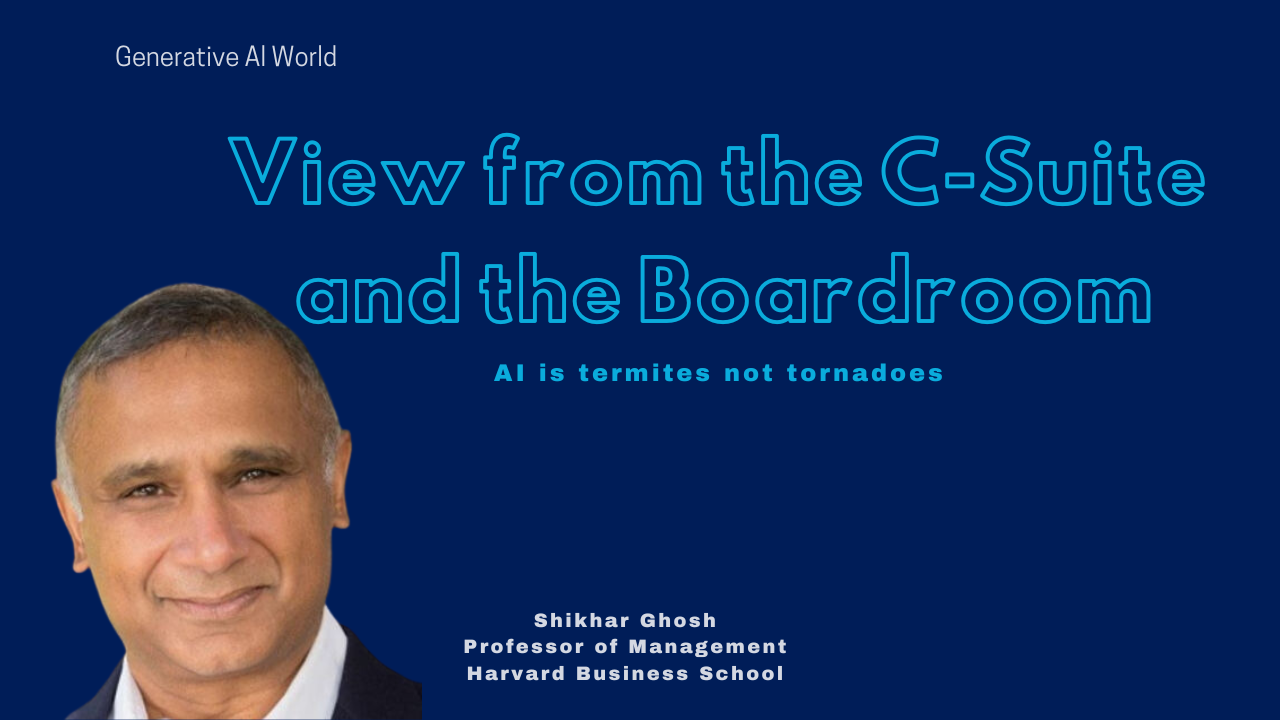Understanding AI Security and Privacy: Key Insights from Walter Haycock of StackAware
Businesses want to integrate artificial intelligence (AI) into their operations. But they may have concerns about security and privacy.Walter Haycock...
In a recent talk, Rosemary Brisco, a marketer with 30 years of experience, introduces a discussion on the evolving impact of large language models (LLMs). A lot of the focus is on business traffic and content visibility. Historically, search engines like Google have been the primary drivers of traffic to corporate websites, and they contribute significantly to lead generation. However, as LLMs become more prevalent, there is a growing belief that these models can be manipulated to reflect specific content, and that might change the landscape of digital marketing.
The panel, featuring experts Alvin Do Rosario and Julio Barros, explores these assumptions and their implications for what we’ll see down the line. Alvin and Julio, both seasoned in AI and digital marketing, bring unique insights into how businesses can navigate this shift. The discussion begins with a prediction that search engine traffic could drop by 25% by 2026. That’s a big hit to businesses reliant on Google for leads. This decline might be due to the rise of LLMs and their ability to generate content and responses based on extensive data training.
Panelists also talk about whether AI can be influenced to reflect a personal view of content for others to see. Alvin responds affirmatively, comparing the process to traditional SEO. By targeting the data sources that feed into LLMs, such as Bing search or common crawl datasets, businesses can increase their chances of appearing in LLM-generated responses. He emphasizes that traditional search engines like Google and Bing mostly rely on SEO techniques, but LLMs as new tech can also be influenced by optimizing content for their specific data sources.
Julio expands on this by discussing the control and personalization within LLMs. He explains that as users interact more with these models, the models learn to personalize responses based on user behavior. This personalization can be a lot like the tailored experiences provided by search engines like Google, and those algorithms adjust search results based on user preferences and past interactions.
The panel addresses the impact of LLMs on SEO, too. Traditionally, businesses have focused on optimizing for Google through techniques like backlinking and monitoring search results. As LLMs came on the scene, there was more of a real need to also consider other platforms like Bing, especially since LLMs can draw from various data sources. Despite Bing’s lower traffic compared to Google, it remains very crucial for businesses to optimize their content across multiple platforms to ensure visibility in LLM responses.
Alvin highlights the evolving nature of search engine algorithms and the need for businesses to stay current with these changes. He notes that Google has recently altered its search metrics, impacting search results. Similarly, as LLMs evolve, businesses must adapt their strategies to maintain visibility. This includes understanding how LLMs generate responses and finding ways to influence these models effectively.
The panel concludes by discussing the broader implications of LLMs on digital marketing. They suggest that as LLMs become more sophisticated, the focus will shift from traditional SEO to optimizing content for these models. This involves not only improving content quality but also understanding the data sources and algorithms that drive LLM responses. By staying ahead of these trends, businesses can leverage LLMs to enhance their digital marketing efforts and maintain a competitive edge in the evolving landscape of online search and content generation.

Businesses want to integrate artificial intelligence (AI) into their operations. But they may have concerns about security and privacy.Walter Haycock...

At the Generative AI World conference September 12-13, we heard from serial entrepreneur and HBS Professor Shikhar Ghosh about AI, and his...
Trusted by companies and vendors around the globe - we help you cut through the noise and stay informed so you can unlock the transformative power of GenAI .
Join us at this year's Generative AI World! Hear from enterprise AI leaders who are achieving meaningful ROI with their GenAI initiatives and connect in-person with the GAI Insights members community including C-suite executives, enterprise AI leaders, investors, and startup founders around the world